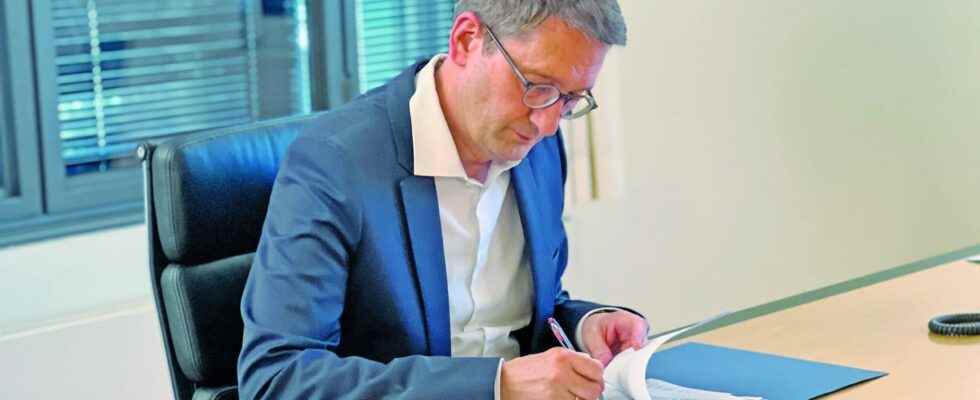The SPD, Greens and FDP have given a lot of space to the topics of digitization and the mobility turnaround in their coalition agreement. The Ministry of Transport and Digital (BMDV) is to implement these plans. In both areas, blockchain technology could provide answers to previously unsolved questions, says Stefan Schnorr.
How digital and innovative is Germany?
Schnorr: I think Germany is more digital and also much more innovative than we think – not only in the digital sector, but in many other areas as well. But we also have some catching up to do when it comes to digitalization, there is no question about it. The bottom line, I think, is that we don’t have a digital administration. E-government is still largely unknown to us.
You will notice this, for example, if you want to register or deregister. I can tell you from my own experience that you have to spend days hoping to find a free appointment online. It’s not completely digital at the moment. We don’t yet have an electronic identity with which we could identify ourselves – like with our analog ID card – in order to make use of digital administrative services. We have decided to change that.
How important is the blockchain in accomplishing the task?
Schnorr: As a government, we shouldn’t dictate which technology solves a problem. Of course, we also see the opportunities associated with future digital technologies such as blockchain and artificial intelligence. Let’s take the digital proof of identity again, for example – blockchain technology will open up real added value for us in the future, especially when it comes to the issue of protection against counterfeiting.
In the end we have to see: where are the best results? Where is the least effort, including – and we always have to think about this – the lowest energy consumption? We cannot use technology – and this is especially true with blockchain – to generate massive energy consumption and ignore the issue of sustainability.
A project that was supposed to create a mobility platform for citizens using blockchain ended three years ago. What is the current standing?
Schnorr: You are referring to the “OMOS” feasibility study. In it, the majority of the experts interviewed named blockchain or digital ledger technology as a potential solution to a large number of challenges of an open mobility platform. For example, in identity management or payment processing. These findings have already been taken up in several projects, e.g. in the “OMEI” project to optimize the electric charging infrastructure.
Basically, our approach is to combine various modes of transport and to think in a networked way. That is also what our Minister said from the start when he came into the House. So far, however, the perspective of the citizen has been less taken into account.
You asked me how to get to work. First, of course, I see how I can get from home to Invalidenstrasse to the ministry as quickly as possible. There’s Google Maps. But we don’t actually have this so-called jack of all trades of mobility yet.
You can find the complete interview in the current August issue of the BTC-ECHO magazine. In addition to the blockchain expertise of Digital Minister Volker Wissing (FDP), it is also about the tank discount and a possible extension of the 9-euro ticket.
BTC-ECHO Magazine (Print & Digital) from EUR 4.99
The BTC-ECHO Magazin is the leading German-language magazine since 2014 on the topics of Bitcoin, Blockchain, NFTs & cryptocurrencies.
To the magazine
